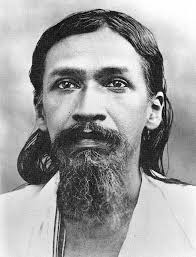Uttarakhand Switch to Hindi
Operation Kalnemi
Uttarakhand’s "Operation Kalnemi," aimed at cracking down on fake sadhus deceiving the public, has been strengthened with new directives from the state government.
- Now, those caught impersonating religious figures will face arrests through criminal charges, not just detention. The move comes after several incidents of fraudulent activities disguised as religious acts.
Key Points
- Enhanced Legal Action: Under the new guidelines, the police are instructed to file cases against imposters under relevant laws, such as the Drugs and Magic Remedies (Objectionable Advertisements) Act, 1954, the BNS Act 2023 (for fake identity cards), the Information Technology Act, 2000 (for cyber fraud and fake social media profiles), and the Foreigners Act, 1946 (for foreign nationals residing on fake documents).
- Awareness Campaign: To prevent people from falling prey to fraudulent religious figures, the government has launched a public awareness campaign, including social media outreach.
- The goal is to educate citizens about the dangers of fake sadhus and the associated crimes.
- Background: Uttarakhand’s Chief Minister launched Operation Kalnemi ahead of the Kanwar Yatra to combat fake sadhus exploiting religious identity.
- Inspired by the demon Kalnemi from Hindu mythology, the operation aims to protect Sanatan Dharma and uphold social harmony.
National Current Affairs Switch to Hindi
153rd Birth Anniversary of Sri Aurobindo
Why in News?
On 15th August 2025, PM Narendra Modi paid tribute to the philosopher and freedom fighter Sri Aurobindo on his 153rd birth anniversary, acknowledging his profound impact on India’s nation-building journey.
- He highlighted that Aurobindo's philosophy and spirituality guided the nation's growth toward realizing its potential.
Key Facts About Sri Aurobindo
- About: Aurobindo Ghose was born in Calcutta on 15th August 1872. He was a yogi, seer, philosopher, poet, and Indian nationalist who propounded a philosophy of divine life on earth through spiritual evolution.
- He died on 5th December 1950 in Pondicherry.
- Education:
- His education began in a Christian convent school in Darjeeling.
- He entered the University of Cambridge, where he became proficient in two classical and several modern European languages.
- He returned to India in February 1893 at the age of twenty-one and commenced his service in the Baroda State.
- He began the study of Yoga and Indian languages, including classical Sanskrit.
- Indian Revolutionary Movement: From 1902 to 1910, he partook in the struggle to free India from the British. As a result of his political activities, he was imprisoned in 1908 (Alipore Bomb case).
- Spirituality: In Pondichéry, he founded a community of spiritual seekers (1910), which took shape as the Sri Aurobindo Ashram in 1926.
- He believed that the basic principles of matter, life, and mind would be succeeded through terrestrial evolution by the principle of supermind as an intermediate power between the two spheres of the infinite and the finite.
- Literary Works:
- In 1906, he became the editor of Bande Mataram, an English newspaper (founded by Bipin Chandra Pal in 1905).
- Bases of Yoga
- Bhagavad Gita and Its Message
- The Future Evolution of Man
- Rebirth and Karma
- Savitri: A Legend and a Symbol
- Hour of God
- The Five Dreams of Sri Aurobindo: In 1947, upon India’s independence, Aurobindo shared his five dreams, which included a free and united India, the resurgence of Asia, a global union for a fairer life, India’s spiritual gift to the world, and a transformative step in human evolution towards higher consciousness and societal perfection.
- Auroville: Auroville, founded by Mirra Alfassa (The Mother) in 1968, is an experimental township in Pondicherry that embodies Aurobindo’s vision of a global, spiritually united community.
- Endorsed by UNESCO in 1966, it emphasizes sustainable living and addresses humanity's future cultural, environmental, social, and spiritual needs.





 PCS Parikshan
PCS Parikshan


